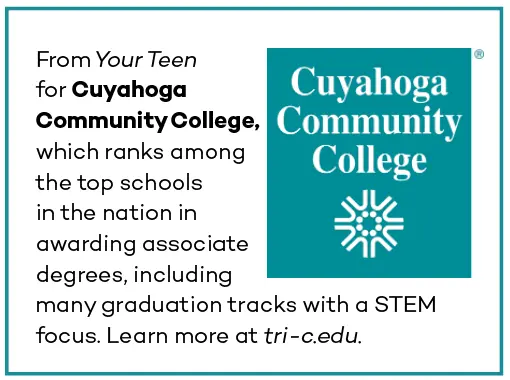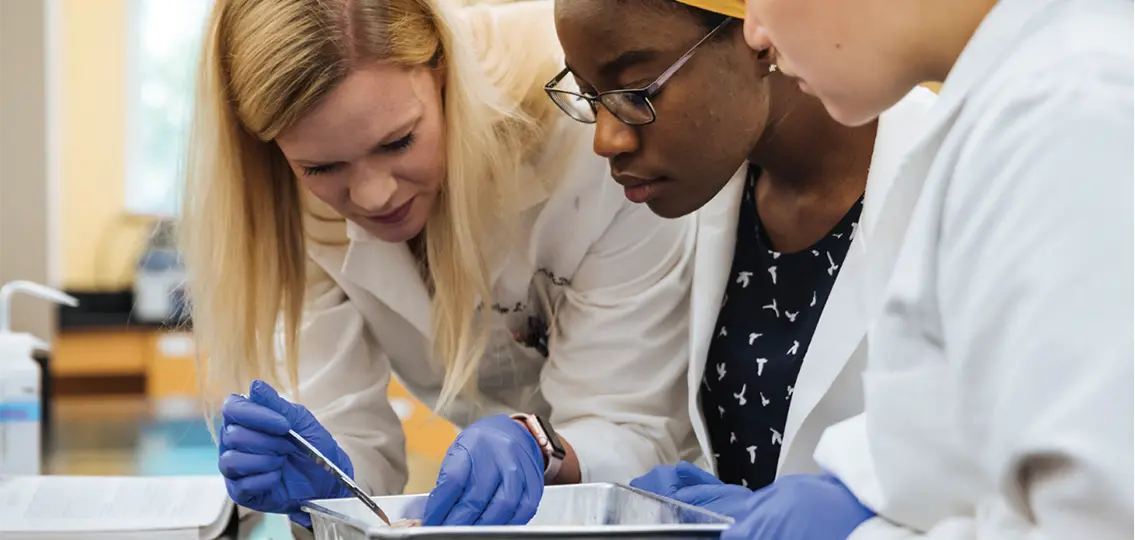The importance of STEM internships became clear to Ormond Brathwaite when his daughter, an aspiring electrical engineer, did one. “She came to me after and said, ‘This isn’t for me. I don’t want to play with wires my whole life.’ Seeing what she liked and didn’t like about potential STEM career paths led to a pivot. Now she ‘plays’ with blood vessels instead,” says the associate dean of STEM at Cuyahoga Community College in Cleveland (known as Tri-C).


Community College Opportunities
If your teen is wondering how to get into STEM, you might need to look no farther than the local community college. Here are three ways it can support your child’s interests:
1. Explore career paths.
Today’s high schools don’t always expose kids to as much information about potential jobs as they did in the past, says Ray Nejadfard, dean and executive director of manufacturing and engineering at Tri-C. “A lot of students today don’t recognize all their opportunities, particularly as they relate to STEM. So we can offer guidance on some of these options.”
In fact, adds Brathwaite, Tri-C in particular offers a number of internships that are specific to their students. In other words, they aren’t competing with students from nearby four-year schools for choice opportunities.
2. Earn college credits at an affordable rate.
Many high school students are able to access community college classes for “dual credit,” meeting high school requirements while also amassing college credits. At Tri-C, these classes include technical options, such as mechanical engineering and robotics, where teens can learn about possible career paths and how they align with their interests and capabilities. Often classes are smaller at a community college than at other universities, offering more chances to interact with the faculty.
| [adrotate banner=”191″] |
“Students can start their academic careers at Tri-C and transfer seamlessly to a four-year college, using this as a bridge to a baccalaureate degree and beyond,” Brathwaite says.
3. Get a fast start on their STEM career path.
While many students might use community college as a way to fulfill their general ed college credits affordably, others might choose to earn a certification that will allow them to pursue an engaging and lucrative career immediately, notes Anne Marie Yunker, associate dean of STEM at Tri-C. “For example, a biology class can help you earn a certification in a medical field. There’s lots of room for flexibility. But you’re not automatically locking your life up for four years in order to be employable.”
Embrace Continuous Learning
What can high school students do now to set them on the right path? Yunker suggests seeking STEM opportunities that are out there for the taking. “Become interested in the world around you by listening to podcasts and visiting museums,” she says. “Engage with the world; work with wood if you’re considering engineering, or garden if you’re interested in the earth sciences.”
She also encourages teens to reach out to professionals they identify on LinkedIn to ask about their jobs. “They’re likely to get a great response; most people find it really flattering.”
And then reach out to see what your local community college advises about how to get into STEM. There’s likely to be more support and opportunity than you may have guessed.

“I always say that community colleges offer technical capabilities from A to Z. You can train for jobs related to STEM now or use your credits to pursue a Ph.D. in the future,” Nejadfard says. “There is a tremendous amount of flexibility for teens to learn what they enjoy and allow it to lead them to whatever their future might be.”




